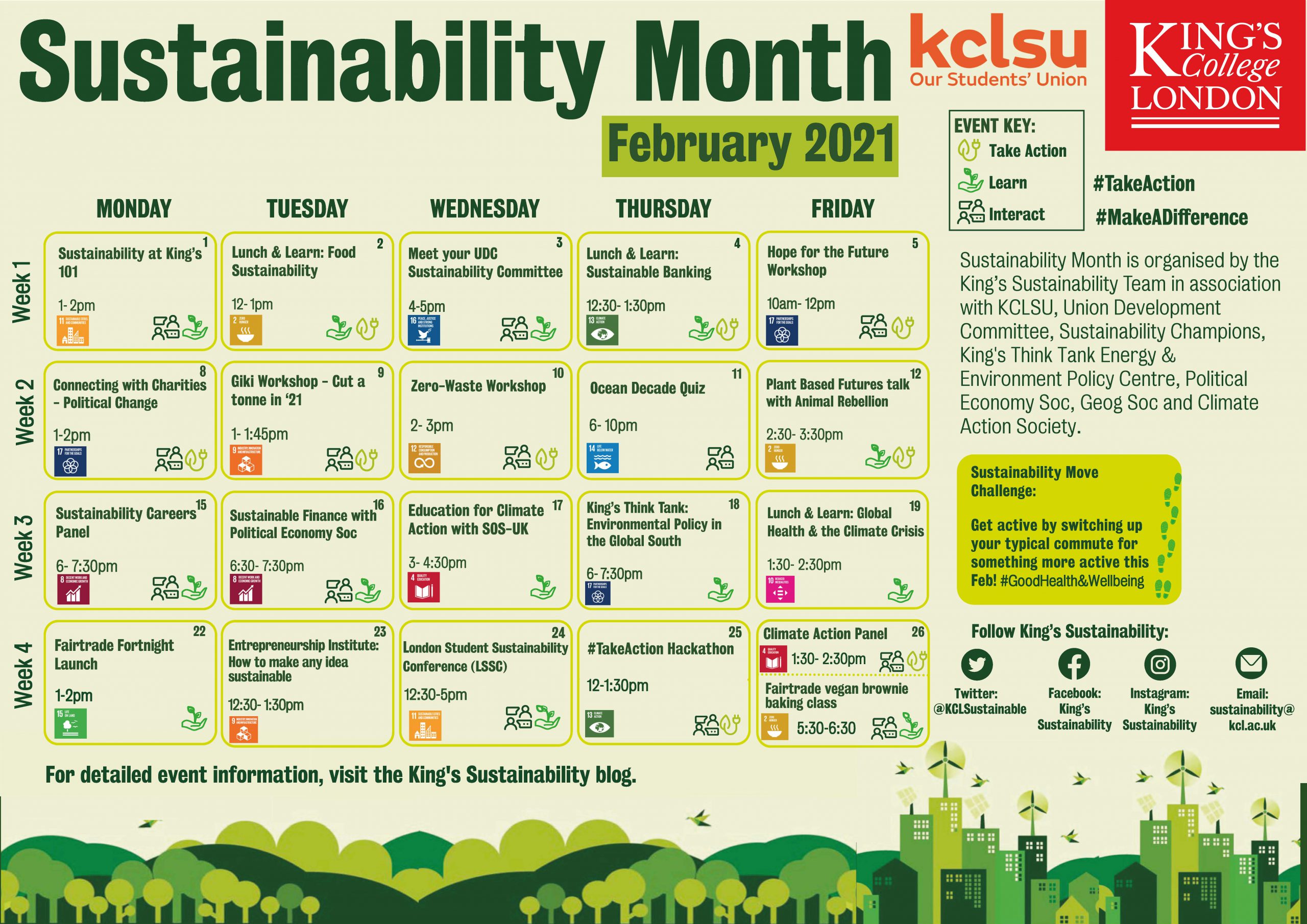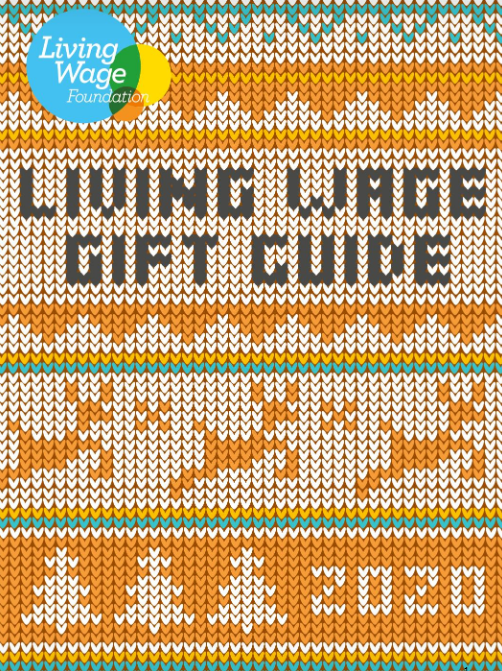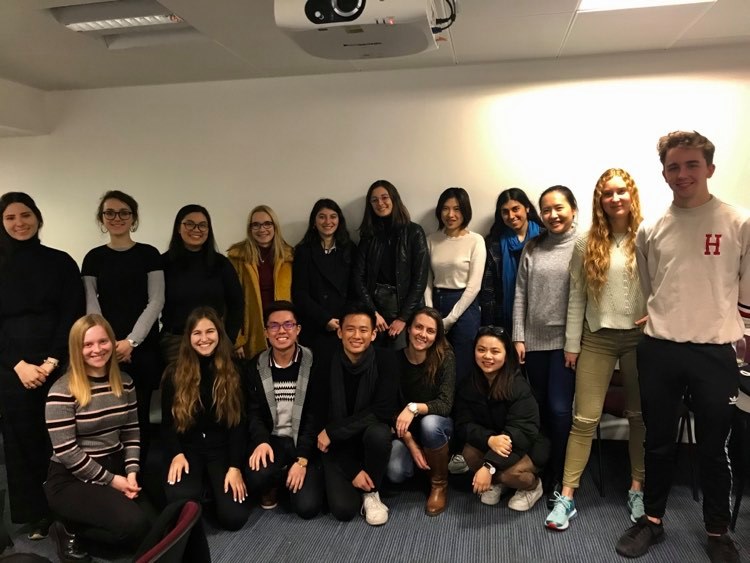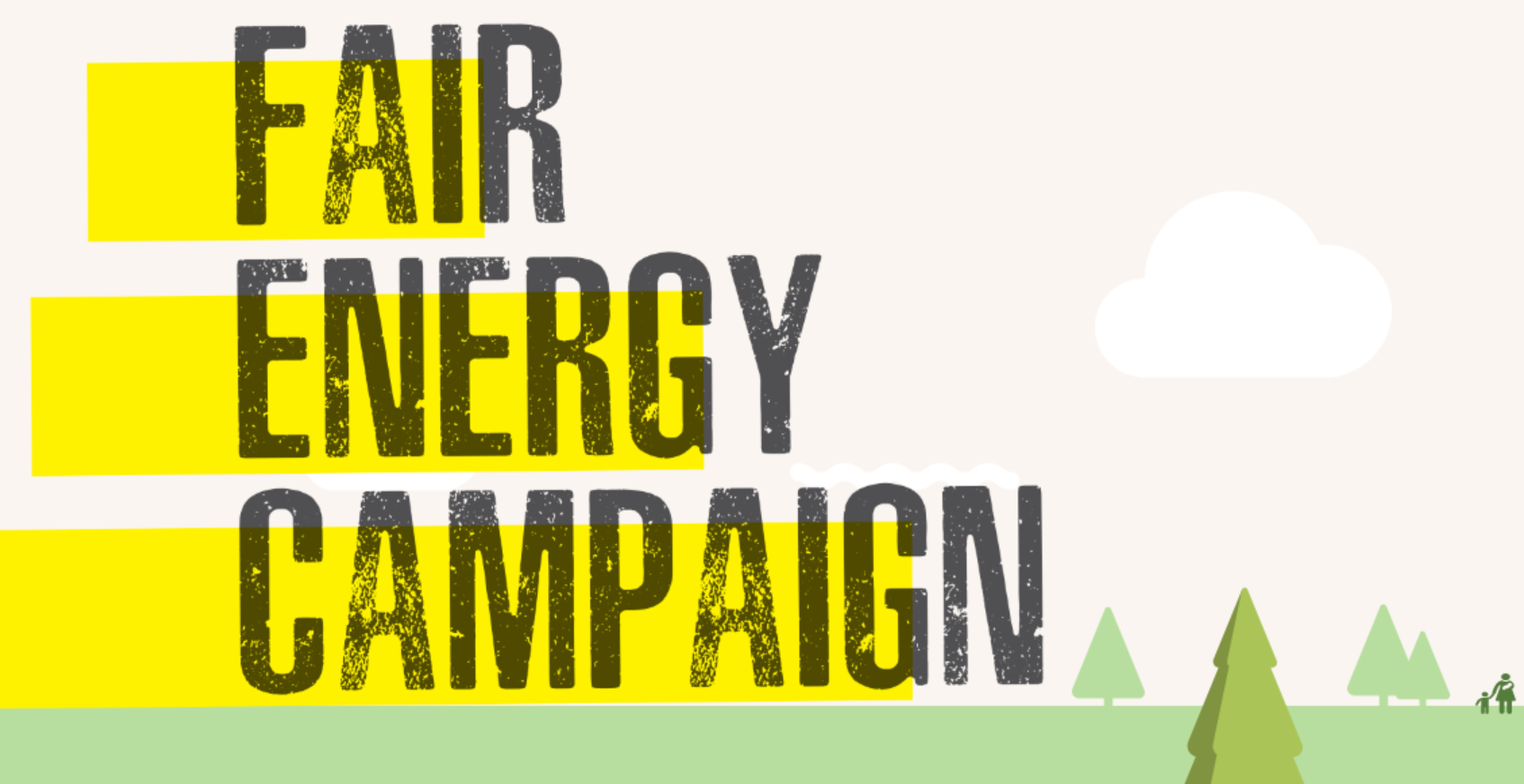This blog comes from Nicola Hogan, Sustainability Manager at King’s.
In all likelihood, the majority of people across the globe, happily waved goodbye to 2020.
It was the start of a new decade that filled us with excitement and anticipation as we, yet again, committed to a series of new year’s resolutions that would result in better versions of ourselves.
We could never have anticipated that within 3 months we’d have succumbed to a global pandemic. Akin to a sci-fi storyline, the Covid-19 pandemic ended up being responsible for the deaths of over 2 million people worldwide. The spread of the virus was reported hourly across various news channels with updates from world leaders on their decisions as to how best to mitigate its spread. Face masks were mandatory inside of public spaces and people were asked to stay at home, only travelling if absolutely necessary. Social distancing became the norm.
When it was reported that the source of this pandemic likely originated from the wet markets of China, exposing the capture and export of exotic animals for human consumption, we were horrified. Seeing animals that have no place in western society, let alone as a food source, being taken from their habitats, our commitment to stop the trafficking of exotic animals and the destruction of their ecosystems seemed to galvanise. Images of caged pangolins and bats made us more aware of the urgency of protecting exotic wildlife and of their natural habitats.
But was this enough to make us boycott these industries? Did the cause of the pandemic make us think about what and how we are consuming?
Not being able to shop on the high street simply made us switch to shopping online. Amazon and eBay reported an increase of sales by an average of 33 % since March 2020 – as everything from face masks to hand sanitiser was sold by the billions. But it wasn’t just COVID related products that were being bought online. We compensated and comforted ourselves during these ‘strange times’ by purchasing non-essential everyday items too.
Bath salts and board games topped the list as did puzzles and Nintendo switches as we entertain ourselves while also indulging in much needed self-care – but are we conveniently forgetting to care for the planet at the same time?
A year later there is light at the end of the tunnel. A vaccine has been found and its rollout across the world has started.
So what will life, post pandemic, look like? Are we likely to revert to our pre–lockdown consumer habits as the message from mother nature is forgotten? Or will we, after having been forced into new ways of living, no longer take for granted our basic freedoms?
Zoom meetings have replaced travelling for work but experts in the travel and hospitality industry have predicted that more personal trips will be taken in 2021/22 to make up for the cancelled holidays of 2020.
It is at this point, the first month of a new year that we should ask ourselves the following questions.
(i) How did we get to this point in the first place and (ii) how do we make sure never return to it?
(iii) What promises to live more sustainably did we make at the start of the lockdown and did we
keep them?
(iv) Are our 2021 resolutions ‘pandemic inspired’ or will it all depend on what the year brings?
It is reported that the yearlong lockdown made us more reflective of our lives and what is important to us. For most people that came back to spending quality time with loved ones and asking ourselves ‘what do we really want from our life’? For me, a fairer and more ethical world should be part of that ‘want’ – a planet whose climate isn’t changing because its being choked by CO2, or who can no longer support its sea-life because it’s filled with pollutants.
2020 will hopefully serve as a reminder for generations to come of what can happen when excessive pilfering of the natural environment is allowed to continue unchecked. Sustainability is a daily commitment to ourselves firstly and then to the planet. It’s a resolution worth keeping and a mindset worth nurturing.
References:
https://amp-theguardian-com.cdn.ampproject.org/c/s/amp.theguardian.com/world/2020/mar/25/coronavirus-nature-is-sending-us-a-message-says-un-environment-chief
https://www.earthday.org/6-lessons-coronavirus-can-teach-us-about-climate-change/
https://www.edie.net/news/7/In-charts–How-coronvirus-has-impacted-sustainability-professionals/
https://time.com/5808809/coronavirus-climate-action/






